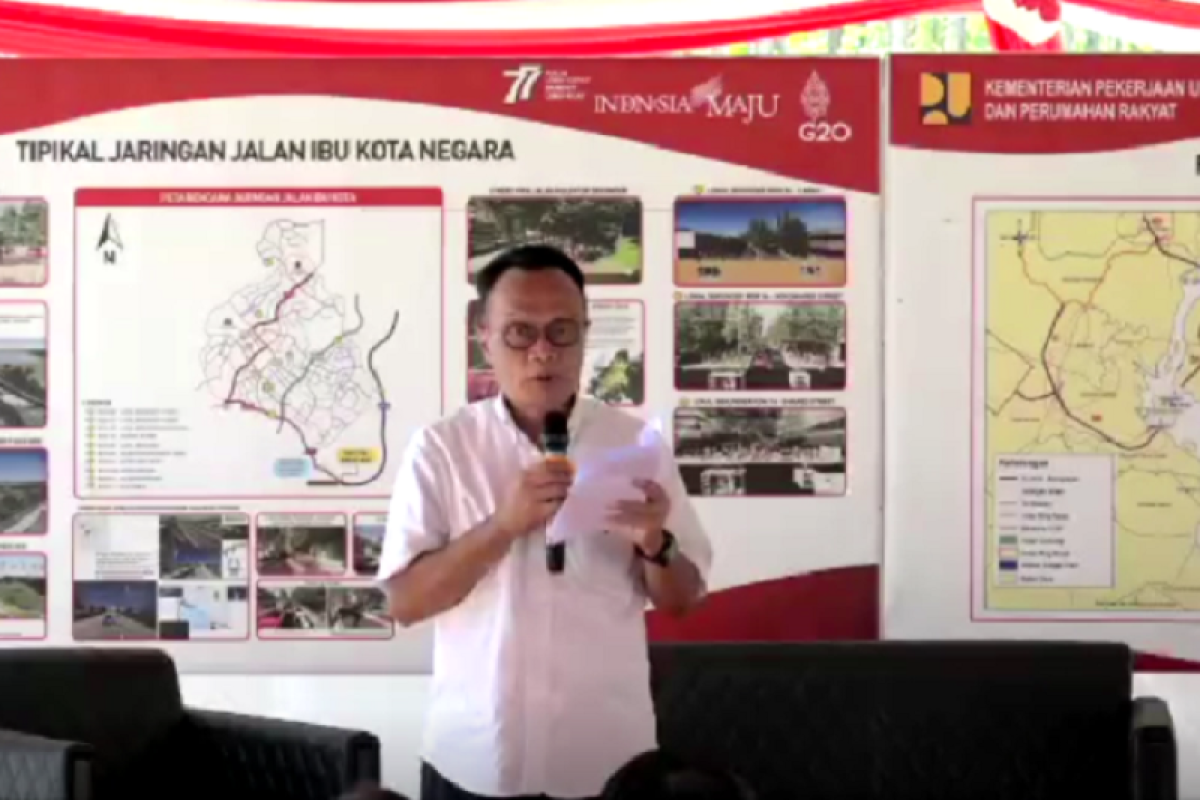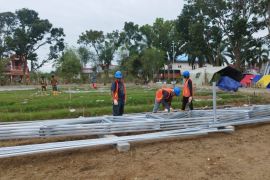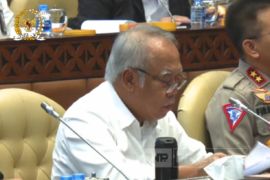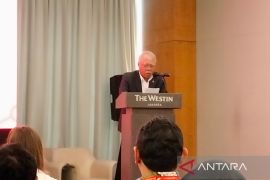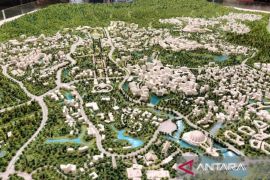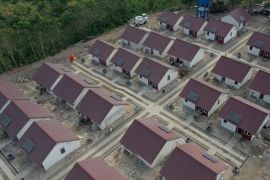In terms of environmental sustainability, the Public Works and Public Housing Ministry has made efforts to back up the principles of net-zero emission in the development of Nusantara capital city’s infrastructure, one of which is by prioritizing theJakarta (ANTARA) - The Public Works and Public Housing Ministry is prioritizing the use of eco-friendly building materials in infrastructure development projects in Indonesia;s future capital, Nusantara (IKN).
"In terms of environmental sustainability, the Public Works and Public Housing Ministry has made efforts to back up the principles of net-zero emission in the development of Nusantara capital city’s infrastructure, one of which is by prioritizing the use of building materials with low energy consumption and carbon footprint," Head of Nusantara city's infrastructure development at the ministry, Trisasongko Widianto, said at a webinar on Friday.
As far as possible, the materials will come from local sources or will be recycled, he added.
Related news: IKN aims to become carbon neutral city by 2045
“The Public Works and Public Housing Ministry will also ensure smooth logistics and also optimize the use of domestic products for the development of Nusantara city’s infrastructure," he affirmed.
He said that this is both a challenge and an opportunity for infrastructure development that supports economic growth while also paying attention to the environmental aspects, especially global climate change so as not to impact the growth targets negatively.
As per the Public Works and Public Housing Ministry’s Regulation Number 9 of 2021 on guidelines for sustainable construction, in supporting the new capital city's construction, the ministry is paying attention to the economic, environmental, and social aspects of sustainable construction.
Related news: Endemic, native plant species to be planted in IKN area: Ministry
The ministry is also committed to extensively promoting the use of environmentally friendly materials, especially non-ordinary Portland cement (non-OPC), which is in accordance with the Public Works and Public Housing Ministry’s Instruction Number 4 of 2020 regarding the use of non-OPC cement in construction works.
“Thus, for business partners, we expect for this to become our common concern to start using environmentally friendly materials, one of which is using non-OPC cement in infrastructure development, especially (projects undertaken) by the Public Works and Public Housing Ministry," Widianto added.
Related news: Nusantara to be among world's most sustainable cities: IKN Authority
Related news: New capital to realize equitable development in Indonesia: Authority
Translator: Suharsana Aji SJC, Mecca Yumna
Editor: Fardah Assegaf
Copyright © ANTARA 2022
